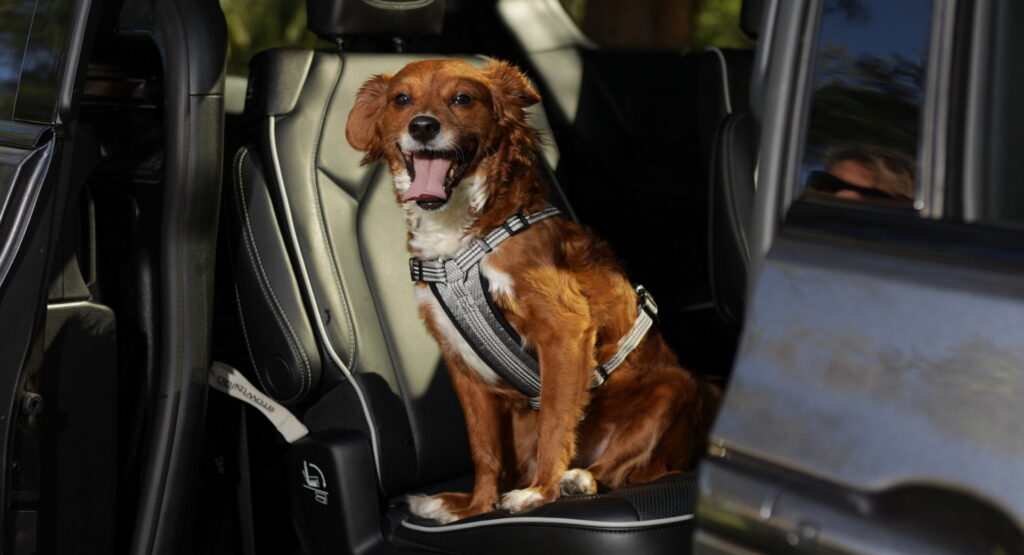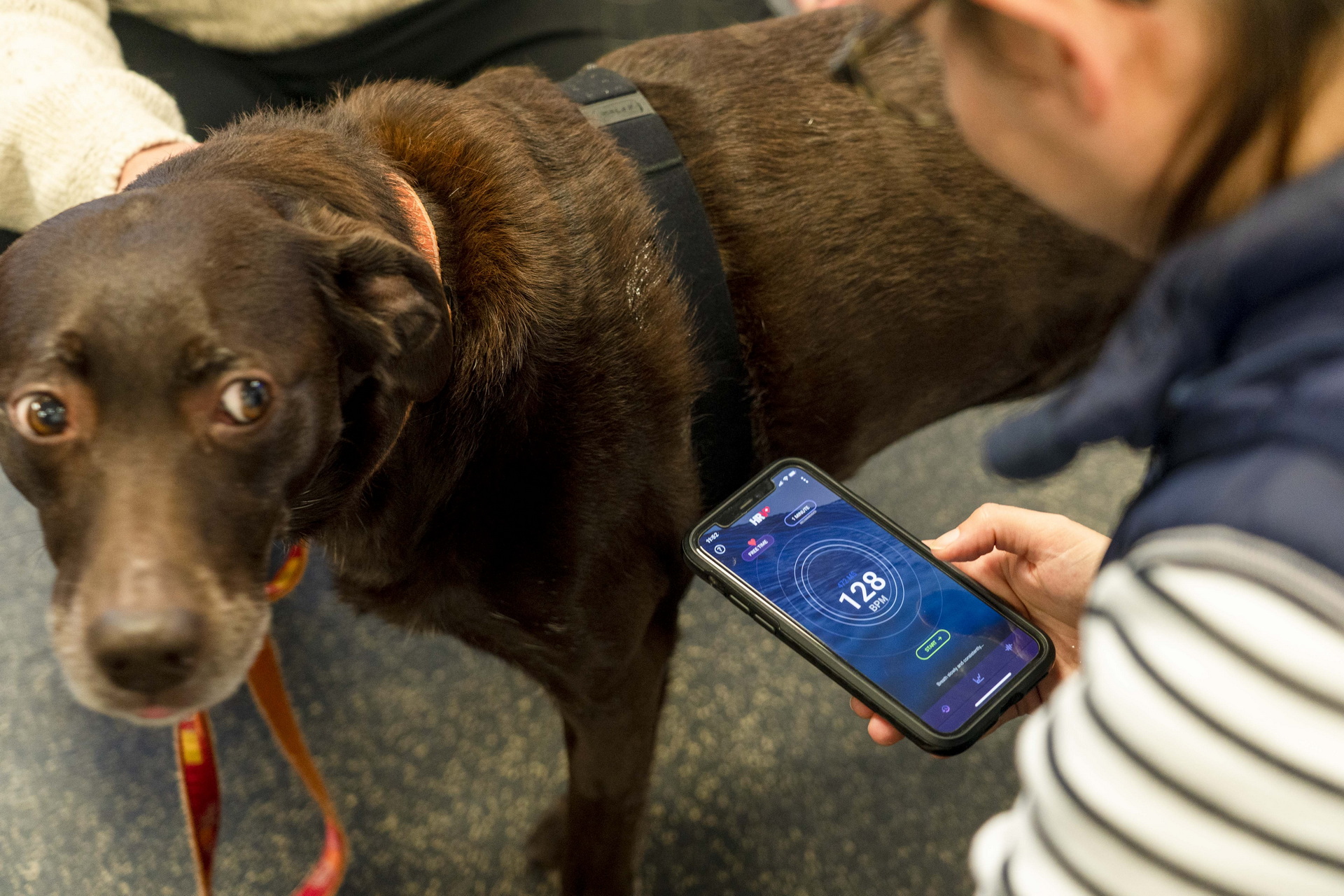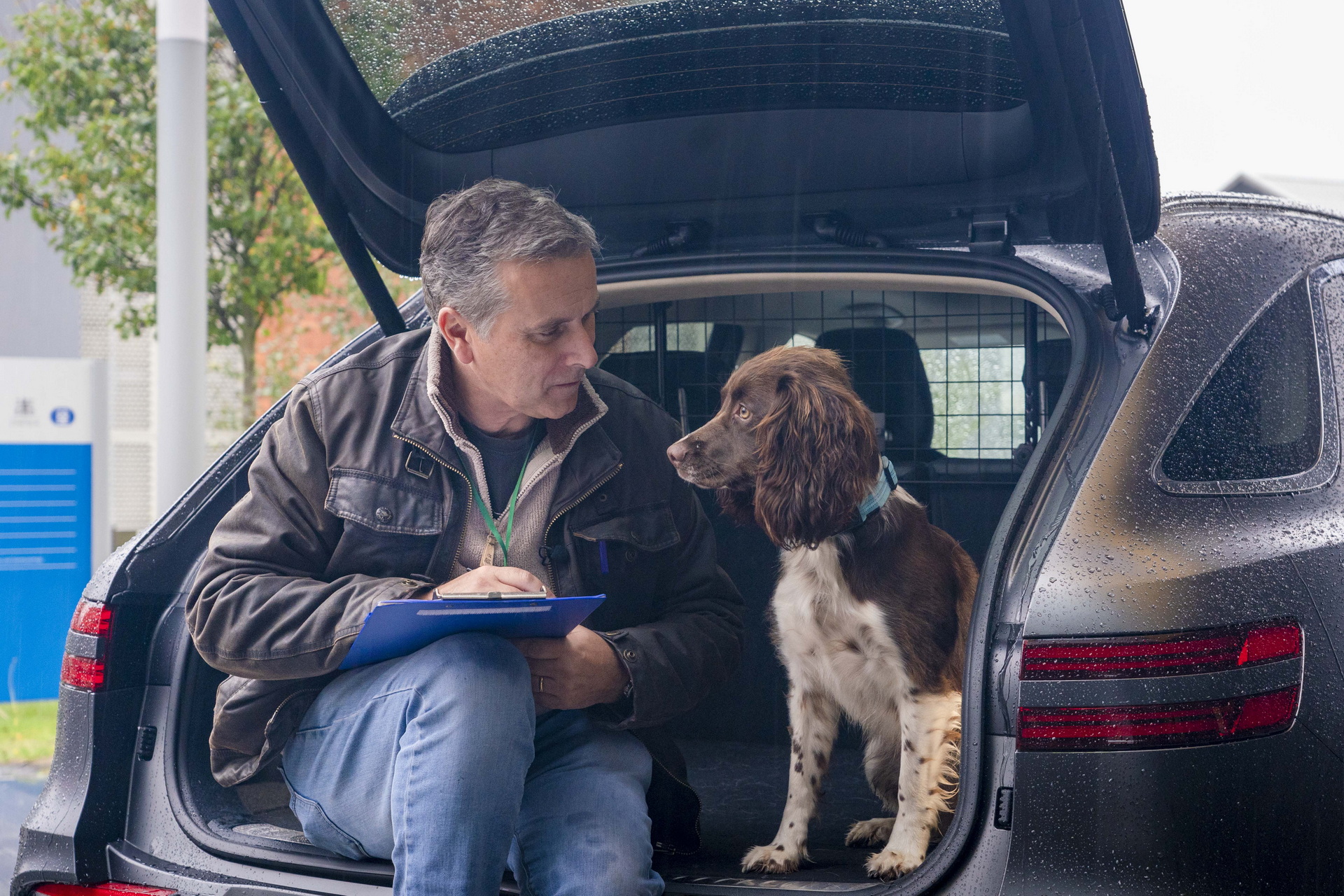The transition to electric vehicles is a matter of much complexity and nuance, but a first-of-its-kind study shows that for dogs, the new technology may simply be better. That is, if their owners currently or previously owned diesel vehicles.
Professor of veterinary behavioral medicine at the University of Lincoln, Daniel Mills, and U.K. automotive marketplace CarGurus got together to study how dogs react to being driven in electric vehicles as compared to being driven in diesel vehicles. They found that, overall, dogs preferred EVs.
“We know most dogs will travel in a car at some point in their life, if not on a daily basis. Yet as EVs become more prevalent with motorists, until now there were no studies of their effect on dogs,” said Professor Mills. “Our results clearly show that dogs seem to be more relaxed in EVs, particularly when looking at behavioral traits such as restlessness.”
Read: Inspired By An April Fools Post, Honda UK Offers Dog Accessories That Are No Joke
The team took 20 dogs on the same 10-minute journeys in both diesel and electric vehicles and analyzed their behavior, as well as their biometric data, before and after each drive. In EVs, dogs broke their laying position about 50 percent less than they did in diesels, which Professor Mills attributes to the sounds and vibrations of the clattering diesel engine.
“Additionally, an interesting and somewhat unintended revelation from the study came from the dogs that we identified as having potential symptoms associated with travel sickness,” said Professor Mills. “During their journeys in the EVs, biometric recordings of these dogs revealed their heart rates slowed markedly more than when they were in diesel cars. This was of particular interest to us, given an increase in heart rate is commonly associated with motion sickness.”
Indeed, the research found that, in a small number of the dogs, their heart rate was 30 percent slower in an EV than it was in a diesel-powered vehicle. And that’s good new for dogs because, touchingly, about 66 percent seem to like being in the car with their owners regardless of what’s powering the car.
In addition to this scientific study, CarGurus also conducted a poll of dog owners and they, too, report that their dogs seem more comfortable in EVs than in diesel vehicles. In fact, 39 percent of owners whose dogs have been in both said they preferred the former. More specifically, 43 percent said their dogs were calmer, 42 percent reported that they were less anxious, and 45 percent said they wined less in EVs.
“It’s an intriguing result, which raised additional questions for exploration within this field,” said Professor Mills.










